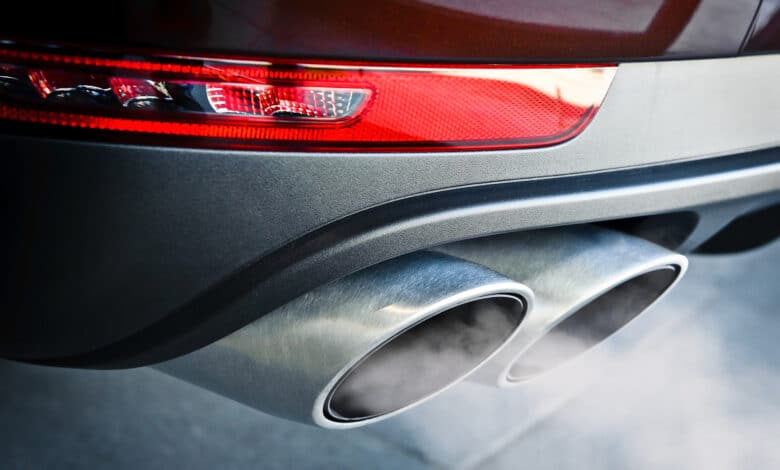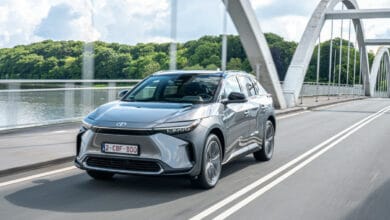
The European Parliament is currently acting quite clearly in the interests of environmental protection. Just yesterday we reported on the plans to introduce USB-C as a mandatory standard for smartphones, tablets and other electronic devices from 2024. This is intended to minimize European e-waste. Now, Parliament agreed on another milestone that is likely to have a far greater impact. From 2035, it will no longer be possible to register vehicles with gasoline or diesel engines. If the European Council now blesses these plans, the end for combustion engines in the EU is apparently certain.
Not only electric cars may be registered
No sooner has the European Parliament’s decision become known than the first critical voices are being raised. These come in particular from lobby associations. That the approach is the best solution for the environment seems undisputed. However, there are concerns about the resulting job losses. After all, building electric cars is by no means comparable with the complexity of a counterpart with an internal combustion engine. However, the new regulation is not intended to ensure that only electric cars may be produced from 2035. Since we cannot yet know which drive system will prevail in the next 13 years, the EU Parliament has broadened its decision. As a result, only passenger cars and light commercial vehicles that do not emit environmentally harmful carbon dioxide may be approved. This means it automatically applies to cars that rely on alternative fuels such as hydrogen or fuel cells.
A right and important step
If you take a look at the bill issued by the EU Parliament, you can understand that the imminent end of the internal combustion engine should come sooner rather than later. After all, road transport still represents an extreme burden on the environment within the European Union. According to the bill, one fifth of all greenhouse gases come from cars with internal combustion engines. Even more alarming than the sheer number itself is the fact that emissions are still rising year after year. Accordingly, the Parliament felt compelled to finally pull the ripcord. With its decision, the EU Parliament is not alone at the EU level. The EU Commission had already made it clear that a phase-out of the internal combustion engine would have to take place. After all, the body only adjusted the emission performance standards for passenger cars in the summer of last year. Now it is up to the EU Council of Ministers to confirm the unanimous opinion of the Parliament and the Commission.
Electric car boom not without reason
If we are honest for once, the move on the part of EU policymakers comes as anything but a surprise. After all, just one look at the automotive market is enough to clearly detect a change in thinking. Almost every manufacturer now offers its own fleet of electric cars. And the share of electric cars is rising steadily. So it’s hardly surprising that many car brands want to get ahead of the EU Parliament’s plans. It is not unusual to hear of manufacturers who want to have only zero-emission models in their own range by 2030. A recent example is the BMW iX1 recently presented by BMW. Nevertheless, policymakers want to make it as easy as possible for companies to move away from internal combustion engines. Thus, the President of the EU Commission Ursula von der Leyen has announced that she will involve the companies. In particular, a transparent timetable should ensure that no company is left behind.
Loss of jobs is feared
Not everyone is pleased with the EU Parliament’s move. For example, Jens Gieseke, a transport expert from the CDU/CSU, believes that a ban on combustion technology would have too serious consequences elsewhere. In particular, the labor market would suffer from the continuation of old-fashioned technology. After all, many jobs would be lost in this sector. Instead, he believes that research into so-called synthetic fuels should be continued. These could be used in conventional internal combustion engines, but would produce lower CO² emissions. He sees another problem in the fact that the infrastructure is still far too poorly developed. If mainly electric cars were really to drive along European roads, far more charging stations would have to be set up.
Must the alternative to the electric car come?
Currently, the e-car is being promoted as a panacea that could save the planet from the major problem of climate change. However, some respected scientists from the “International Association for Research on Sustainable Propulsion and Vehicle Technology” have now come together to express concerns as well. They said that the main problem is that even the electricity from electric cars is still mainly produced using fossil fuels. In the end, the environmental balance is not quite as good as is often communicated. Experts also see a major problem in the increasing demand for suitable technology for electric cars.
This could lead to an unhealthy dependence on China. Instead, the scientists insist that more research is needed into synthetic fuels. However, if the internal combustion engine is indeed phased out in 2035, this research sector is unlikely to have much more ambition. Still other scientists believe that synthetic fuels are not nearly as efficient as electric cars. In view of the two fronts that have built up here in recent months and years, it is probably quite good that Parliament is now finally putting its foot down and ensuring clarity.




No replies yet
Neue Antworten laden...
Gehört zum Inventar
Beteilige dich an der Diskussion in der Basic Tutorials Community →